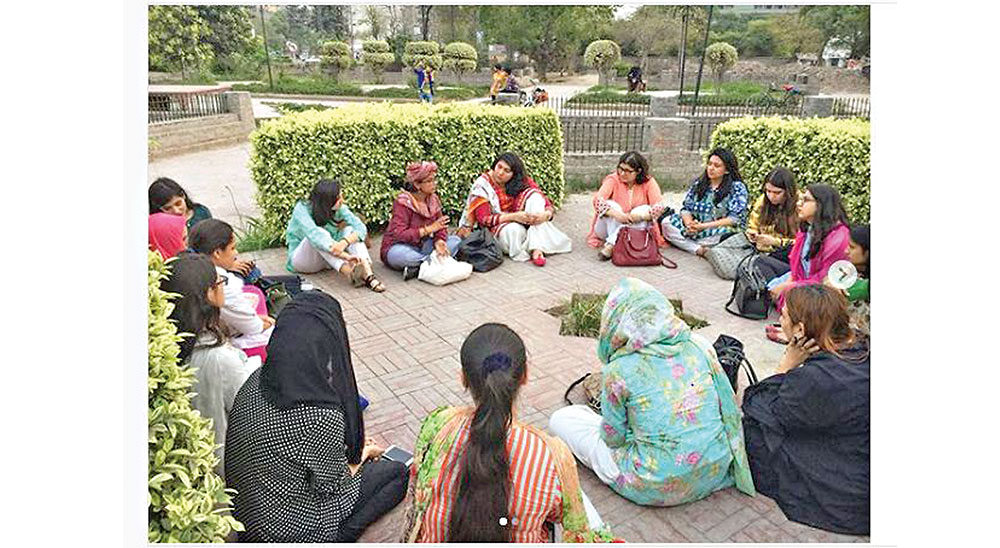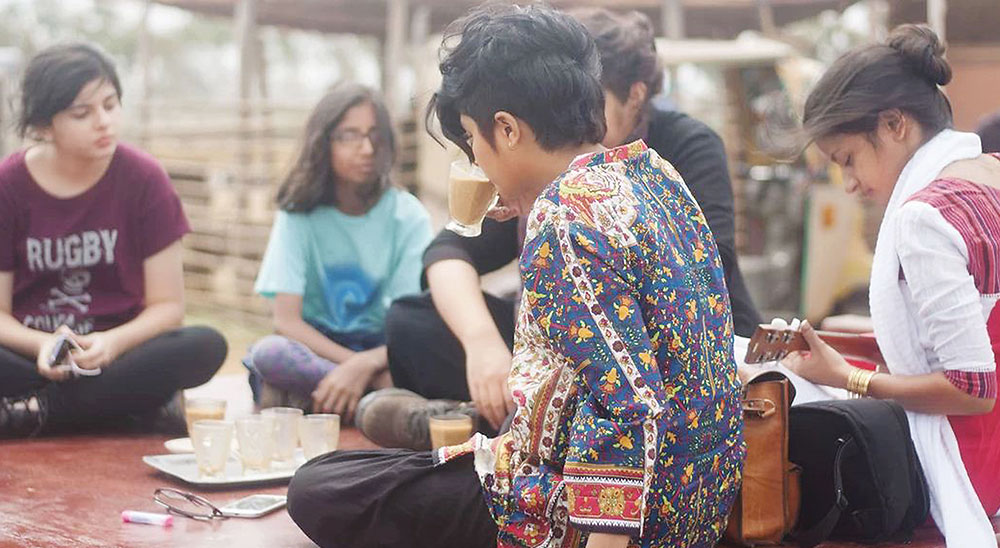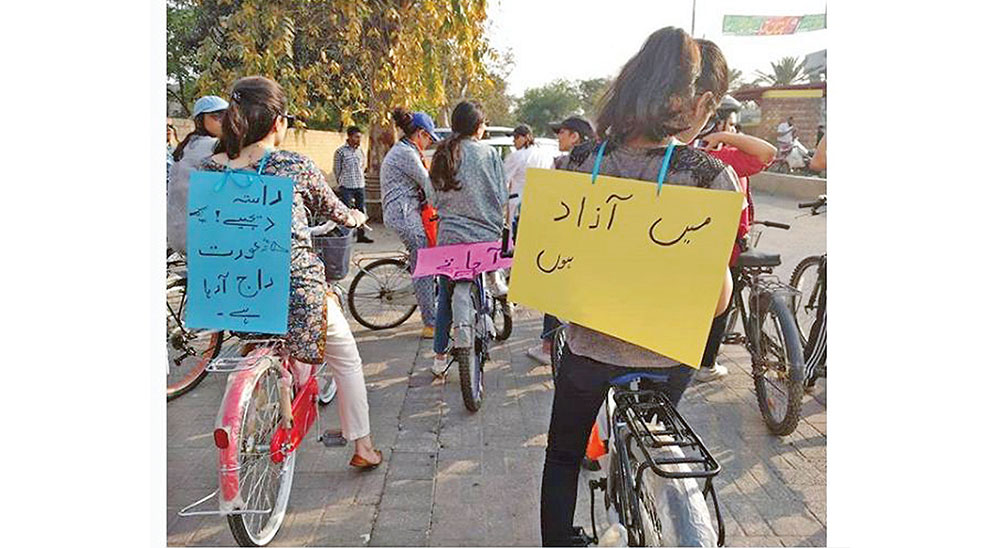Social Media to you is?
- 27 May - 02 Jun, 2023
Kick-started by a group of young enthusiastic ladies, Girls at Dhabas is a movement for women to claim public spaces. With the desire of making the use of public areas common for women of all classes and ages, this unique campaign has the true potential of bringing about a wave of change. Led by Sadia Khatri, Natasha Ansari, Rabeea Arif and Najia Khan, Girls at Dhabas was initiated with the vision of making dhabas a personal experience for women. After travelling the world, these girls saw how women of all ages would participate in local activities and enjoy their life without the fear of being harassed by anyone.

An extreme lack of female presence in communal spaces in Pakistan makes the girls realise the need for a proper movement. They started questioning the by-laws of society and why seeing a girl roaming around footloose was considered such a taboo? Especially, women belonging to the middle class, as they were never seen enjoying a cup of tea or laughing around public spaces, or merely just being themselves. What was the discrimination for? Was it really for their safety? Or was it because people around them made them feel uncomfortable? Was it because people found their presence intruding and made them a victim of eve teasing? In the quest of changing the conventional patterns, these brave girls set on a mission. The four friends started to build confidence among the female population and decided to make their presence acknowledged and habitual, so they would no longer be a victim of harassment.

Originally, a dhaba is a roadside café that serves snacks, beverages and food to its customers. Visible at most places around the country – in a city or a highway – a dhaba is the perfect and most effective spot for socialising and hanging out. Normally, women and children don’t frequently visit such spaces; especially in a country like Pakistan, a woman who is not accompanied by a male family member is judged in the public eye. Therefore, founders of the movement have made it their aim and objective to challenge gender constraints on loitering.
In an interview to The Missing Slate, a representative of Girls at Dhabas stated:
“Men will only stop getting away with harassing women when women become a common sight on the streets, when we start occupying public spaces differently, comfortably, with the confidence that we own them as much as men do.”
Kick starting the movement with a hashtag – #girlsatdhabas – the four women started sharing pictures on social media of themselves sipping tea and devouring parathas at dhabas, a place where their presence was looked down upon following absurd social norms – this was their way of symbolising ownership and rebellion. Bit by bit, the hashtag encouraged more girls to do the same. Gaining confidence, the young women learnt to handle eve teasing and harassment. They built a sisterly bond and learnt how to stand up for each other. The movement slowly started growing and women started pushing their boundaries, as well as debriefing their limitations. They could be seen holding signs for the public to see, all while challenging misogyny. The utter realisation that they had a voice, a voice that was first just a whisper to start with, was evolving to a widely chanted slogan.
When asked on how they would identify their stance, they replied, “There isn’t anything about sitting at a dhaba having chai that particularly screams: look at my politics. But it becomes political because public space is contentious and political; it becomes feminist because I am a woman who needs to go through a certain mental and physical effort to be in that space; it becomes art because it is playful, it focuses on the ways we create pleasure – ordinary pleasure – in the streets.”

With this, Girls at Dhabas have organised many events like, Behen Chara Corner, sleep-ins at parks, Vigil for Qandeel Baloch, Monday Mehfil and Girls on Bikes, to name a few.
Girls on Bikes was an eye-opening event where women of all ages took their ambitions to the road, when they gathered in urban cities like Lahore, Islamabad and Karachi. The question arose when cyclist Aneeqa was harassed and abused for merely riding a bike. Feminists triggered this debate and started using cycling to empower themselves. People usually dismiss catcalling to be taken as flattery or even worse, they blame the girl for being an eye-candy. Girls who participated in the event remember it as a sisterhood gathering. Cycling side by side, the girls experienced the city in an absolutely different perspective, stating that for the first time in their life they truly saw the city. Helping each other through hurdles, the ladies felt a sense of accomplishment. Yet, discomfort arose from eve teasing. However, they regained self-confidence when some good, cooperative people gathered to cheer them on. The success of the rally could be reflected by the beaming faces of all the participants, among which many considered to invest in a bike.
Nevertheless, these ladies didn’t stop here. With hearts full of hope, they dreamt of opening their very own dhabha that would focus on the protection of not just women but people with diverse gender orientations. To create a safe haven, where they can relax and have a cup of tea without any fear. Even though they claim that the initiative is not misandrist, the staff would be entirely comprised of women. Once the #DhabaForWomen will set up, the young entrepreneurs plan to turn it into a space that runs regular activities, workshops, dialogues and campaigns about women and marginalised individuals. They also plan to expand the venture by adding leisure activities which, for the longest time, have been stereotyped only for men, as it will include a motorcycling club.
Fighting against misogyny on the streets, these exemplary women are taking baby steps to make basic community spaces functional and accessible for all. With the passage of time, the movement has blossomed and enforced women to challenge the harassment they face on a daily basis. Girls at Dhabas definitely deserves a standing ovation. •
COMMENTS